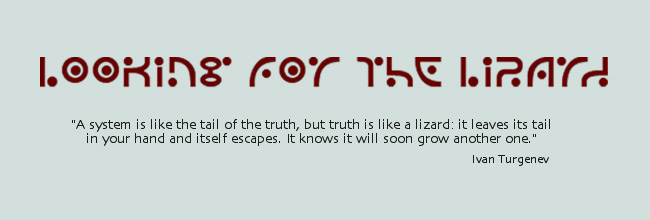Now, however, I have a problem – what artist would give me permission to use their statement as an example of what not to do? I consider whether using the statements without telling the artist is illegal and unethical. Maybe not illegal, since copyright law allows for use of quotes for educational purposes. But definitely unethical. So how do I ask? I need to anticipate their feelings and see whether I can find ways to alleviate them.
What if I don’t use their names? That way, no one is embarrassed publicly. But then the artists whose statements are used as good examples also don’t get credit. Is that a problem? It might be for me. Can I use the names on the good examples and not the poor ones? Now it’s starting to feel sleazy.
What if I rewrite the statements so I don’t need permission? Use them as a basis for the point I want to make but change them enough that they are no longer the artist’s. I’m not sure I’m that good a writer. It’s like doing impressions – you have to be able to become invisible and take on someone else’s manner and appearance. If I miss the mark, the examples would be just more of me me me, and me alone is not helpful enough.
No, it seems I’m going to have to face up to people with my opinion about their writing if I use examples. Which reminds me that I feel responsible for not helping them improve their statements back then. I did provide a short how-to sheet along with the entry forms, but I did not mentor people well. I tried to give everyone what they needed without the discomfort of giving individuals what they needed. In truth, I could not have done all I did and added on mentoring every entrant, but we could have set things up differently. Food for thought.

First.
ReplyDeleteThis does pose an interesting dilemma. I think, though, that you could rewrite the statements yourself without them being just more of you. You could use the method psychology writers use when describing a case: composite more than one example together and change all the details.
Another option, if it's available, might be to find examples from someone who improved significantly in their statement-writing abilities. This could be someone who improved a lot between a first and a final draft or someone whose writing improved over the course of several years. That way it would be a compliment to ask someone to use their work as an example.
Of course it's unlikely that there is someone who fits either profile well enough for your purposes.
Hi Kate--
ReplyDeleteYou'll be mildly interested in the fact that I was able to find your blog on Martha's computer by searching on "lizard Kate Van Dyke." Rick will be so proud!
I think I would fictionalize any bad examples. Authors have to be careful about their friends working overtime to recognize themselves, so you have to be thorough in expunging relevant details. Alternatively, teach on what should be done, and use several good examples as models. Is it necessary to show inferior work? Can you build up people's expectations that they can do it well, encourage them to try? We would ALL want to rewrite our artist's statements from a few years ago, wouldn't we? As a professional writer, your standards would naturally be higher than someone who communicates best via his/her art.
Kate, totally digging your blog.
ReplyDeleteWrite your book, woman. We need it.
I agree with Kelly's second thought. Find a good artist who writes good artist statements who a) used to write bad artist statements or b) has recently written a first draft of an artist statement that was bad. I mean c'mon, even the good artists write bad first drafts.
Trust me. I read first drafts of essays for my book and they weren't all pretty.
Go for it.
The Younger Taylor household loves you and cheers you on. Rah, rah, rah Kate!